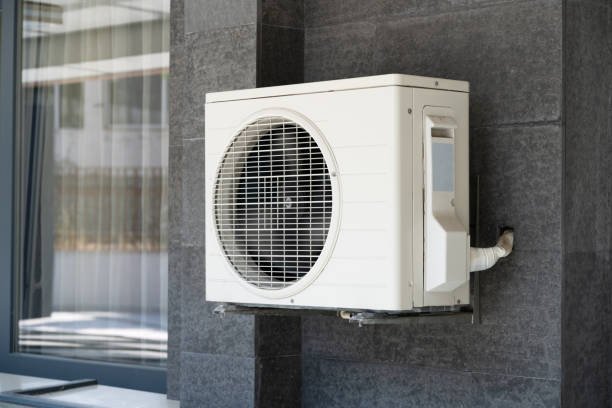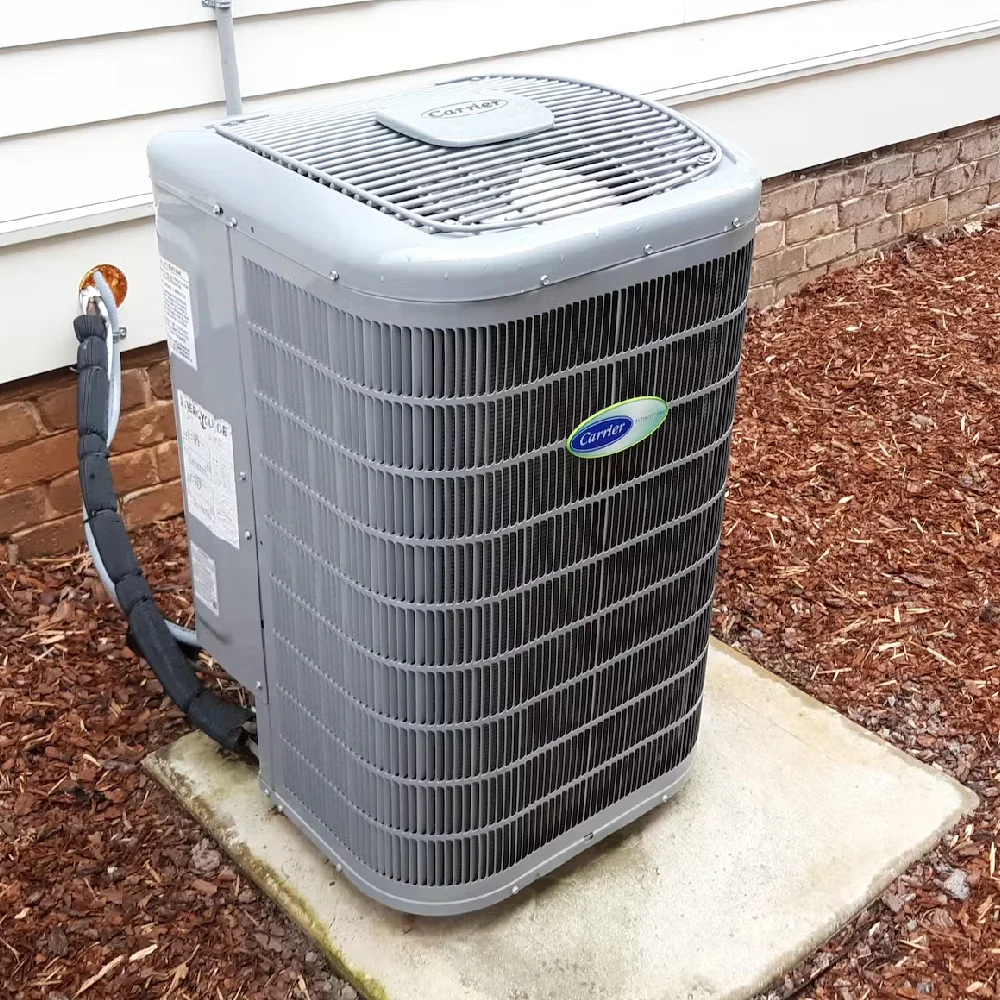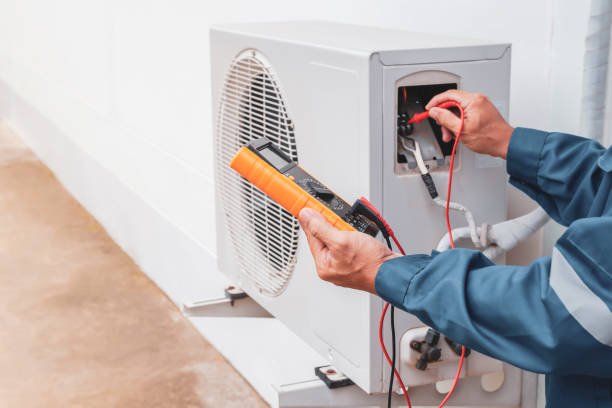From Estimates to Expenses: How Much Does It Cost To Have Someone Install An AC Unit?
Introduction
When the sweltering heat of summer descends, many homeowners begin contemplating the comfort of a cool, climate-controlled environment. The decision to install an air conditioning system is not merely about beating the heat; it's also a significant financial investment. Understanding the ins and outs of air conditioner installation costs can save you from unexpected expenses down the line. In this comprehensive guide, “From Estimates to Expenses: Understanding the True Cost of Air Conditioner Installation,” we’ll delve into various aspects that contribute to the overall expense associated with installing an air conditioning unit.
What Does Air Conditioner Installation Entail?
When we speak about air conditioner installation, what exactly does it involve? Let’s break it down.
1. Types of Air Conditioning Systems
Air conditioners come in several types, each with its unique installation requirements:
- Central Air Conditioning: This system cools an entire home through ducts.
- Ductless Mini-Split Systems: These are ideal for homes without existing ductwork.
- Window Units: They are less expensive but limit cooling to individual rooms.
- Portable AC Units: Easy to move around but often less efficient.
2. Assessment and Planning
Before any physical installation begins, a professional assessment is crucial. An expert will evaluate your home's size, insulation quality, and existing ductwork—or lack thereof—to recommend the most suitable system.
Factors Influencing Air Conditioner Installation Costs
Understanding the factors that influence costs can help you make informed decisions when planning your project.
3. Equipment Costs
The type and efficiency rating of your chosen air conditioning unit significantly affect overall costs. Higher SEER (Seasonal Energy Efficiency Ratio) units generally have higher upfront costs but offer savings on energy bills over time.
4. Labor Costs
Labor costs vary by region and contractor experience level. Always obtain multiple quotes to ensure you’re getting a fair price while maintaining quality installation standards.

5. Ductwork Modifications
If you're opting for a central air conditioning system and your home lacks proper ductwork, expect additional expenses for modifications or new installations.
6. Electrical Upgrades
Sometimes, older homes may need electrical upgrades to support modern lascrucesaircontrol.com systems, which can add another layer of cost.
Estimating Your Air Conditioner Installation Costs
Creating a budget before starting your installation process is vital for financial planning.
7. Average Cost Ranges for Different Systems
| Type of System | Average Cost (Including Installation) | |------------------------------|----------------------------------------| | Central Air Conditioning | $3,000 - $7,000 | | Ductless Mini-Split Systems | $3,000 - $5,000 | | Window Units | $150 - $800 | | Portable AC Units | $300 - $700 |
8. Additional Costs to Consider
Beyond just equipment and labor, consider these potential costs:
- Permits
- Disposal fees for old units
- Maintenance contracts
Hidden Costs in Air Conditioner Installation
Often overlooked are hidden costs that can sneak up on unsuspecting homeowners during the installation process.
9. Seasonal Pricing Variations
Did you know that installation prices can fluctuate seasonally? Demand peaks during hot months may lead to higher prices. Scheduling your installation in off-peak seasons could save you money.

10. Warranty Considerations
A comprehensive warranty can protect your investment but might come at an added cost upfront—consider this when budgeting.
Financing Options for Air Conditioner Installation
If upfront costs seem daunting, there are financing options available that make air conditioner installations more accessible.
11. Personal Loans vs. Financing Plans Offered by Retailers
Personal loans typically have fixed rates but require good credit scores; retailer financing plans may offer promotional 0% interest rates for qualified buyers—always read the fine print!
Benefits of Professional Installation vs. DIY Installation
You might be tempted to tackle air conditioner installation as a DIY project; however, there are compelling reasons why hiring professionals is usually best.
12. Expertise and Experience Matter
Professional installers have undergone rigorous training and understand local codes—this expertise ensures compliance and maximizes efficiency in operation.
13. Warranty Protection through Professional Installations
Many manufacturers require professional installations for their warranties to be valid—this protection could save you headaches later on if problems arise.
Choosing the Right Contractor for Your Air Conditioner Installation
Finding a trustworthy contractor is essential in ensuring quality work without breaking the bank.
14. Researching Credentials and Reviews
Always check online reviews and request references from potential contractors—it’s crucial to know their track record before making a decision!
Energy Efficiency Considerations in Air Conditioner Installation
Purchasing an energy-efficient unit may seem like a higher initial expense but offers benefits beyond just cooling comfort.
15. Long-Term Savings on Energy Bills
Higher SEER ratings lead to lower energy consumption over time—this means long-term savings!
Maintenance After Air Conditioner Installation: What You Need to Know?
Once installed, keeping your air conditioning unit in top shape involves routine maintenance tasks that shouldn’t be neglected.
16. Regular Filter Changes Are Essential
Changing filters every 1–3 months promotes airflow efficiency—neglecting this simple step can lead to costly repairs down the line!
17. Annual Professional Inspections Can Save Money Over Time
Scheduling yearly check-ups with professionals keeps small issues from ballooning into significant problems—an ounce of prevention is worth a pound of cure!
The Environmental Impact of Choosing an AC System Wisely
In today’s world, considering environmental impact is crucial when selecting any appliance—including air conditioners.
18. Eco-Friendly Refrigerants Are Key
Modern systems use refrigerants with lower global warming potential—making eco-conscious choices helps reduce carbon footprints.
FAQ Section
19. What Is Included in Standard Air Conditioner Installation?
Standard installations typically encompass delivery, setup of all necessary components (like ductwork), leveling outdoor units, refrigerant charge adjustments, and testing after completion—all ensuring optimal performance right away!
20. How Long Does It Take To Install an Air Conditioning Unit?
Most residential installations take anywhere from four hours up to one full day depending on complexity—the specific timeline will depend on factors like existing ductwork or electrical setup changes needed!
21. Will My Home Require New Ducts For Central AC?
Not necessarily! If you already have functioning ducts compatible with modern standards—you might avoid this extra cost altogether—but if not expected upgrades could increase overall expenses significantly so plan accordingly!
22. Can I Install My Own AC Unit?
While DIY installation may seem tempting—it often leads unfamiliar homeowners down problematic paths resulting in costly mistakes! Hiring professional help ensures compliance with local regulations while maximizing efficiency throughout its lifespan!
23. How Can I Ensure I Get The Best Deal On My AC Unit?
Obtaining multiple quotes from reputable contractors allows you compare prices effectively—and don’t hesitate negotiate! Seasonal promotions occur frequently; scheduling during off-peak times often yields better deals too!
Conclusion
Understanding all components involved makes navigating through “From Estimates to Expenses: Understanding the True Cost of Air Conditioner Installation” much easier! By researching different systems available while comprehending factors influencing their total price tag enables informed choices tailored specifically toward individual needs/preferences without overspending unnecessarily! Investing time into learning about maintenance practices ensures prolonged lifespan & peak performance levels once installed too—not forgetting environmental responsibilities either! Ultimately investing wisely today leads toward comfortable living environments tomorrow!
